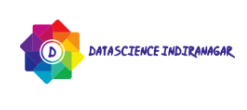"Harnessing Data for a Smarter Tomorrow: Join Our Data Science Course."
For those who want to pursue a data science course, there are several steps you can take to get started:
Understand the Basics:
Before diving into a data science course, it’s helpful to have a foundation in mathematics, statistics, and programming. If you’re new to these topics, you might want to take introductory courses in algebra, calculus, statistics, and programming languages like Python.
Choose the Right Course:
There are many data science courses available, both online and in traditional academic institutions. Choose a course that aligns with your level of expertise and your goals. You can opt for online courses, bootcamps, or formal degree programs, depending on your preferences and resources.
Online Resources:
Consider taking advantage of online platforms and resources like 360digitmg Academy. These platforms offer a wide range of data science courses and related materials.
Formal Education:
If you prefer a more structured approach, you can enroll in a formal data science degree program at a university or college. These programs typically offer a comprehensive curriculum that covers statistics, programming, machine learning, and more.
Learn Python and R:
Python and R are two of the most popular programming languages for data science. Learning these languages is crucial, as they are used for data analysis, data visualization, and machine learning.
Statistics and Machine Learning:
Gain a solid understanding of statistics and machine learning concepts. Courses in these areas are fundamental to data science. You can find courses on platforms like 360digitmg that cover these topics.
Hands-on Practice:
Practical experience is essential in data science. Work on real-world projects and use datasets to apply what you’ve learned in your courses. Kaggle is a great platform for finding datasets and participating in data science competitions.
Data Visualization:
Learn data visualization tools like Matplotlib, Seaborn, and Tableau. Effective data visualization is crucial for conveying insights from data.
Join Data Science Communities:
Engage with the data science community through forums, social media, and local meetups. This can help you stay updated on industry trends and network with professionals.
Build a Portfolio:
Create a portfolio of data science projects to showcase your skills to potential employers. Your portfolio can include personal projects, competition entries, and any work you’ve done during your courses.
Apply for Jobs and Internships:
Start applying for data science positions or internships once you feel confident in your skills. Tailor your resume to highlight your relevant experience and projects.
Continuous Learning:
Data science is a rapidly evolving field. Stay current by reading research papers, blogs, and attending conferences or webinars.
Remember that the journey to becoming a data scientist may take time and effort, but it can be a rewarding career path with a growing demand in various industries. Good luck on your data science journey!
Certification Courses

Professional Course in Data Analytics with Job Guarantee

Data Science Course

Certificate Course in MLOps with Kubeflow Training

Data Engineering Certificate Course
Course Content: Review the curriculum to ensure it covers the topics and skills you want to learn in data science. Look for a comprehensive syllabus that includes both theory and hands-on practice.
Instructors: Check the qualifications and experience of the instructors. Experienced professionals in the field can provide valuable insights.
Student Reviews: Look for reviews or testimonials from previous students who have taken the course. Their feedback can give you a sense of the course’s quality.
Placement Assistance: If job placement is important to you, inquire about the course’s placement assistance and track record in helping graduates find relevant positions.
Cost and Duration: Consider the course’s cost, duration, and flexibility to ensure it fits your budget and schedule.
Accreditation: If it’s an institution, check if it is accredited and recognized by relevant authorities.
Location: Evaluate whether the course’s location is convenient for you and offers a conducive learning environment.
Career Support: In addition to placement assistance, see if the course provides career counseling, resume-building workshops, and interview preparation.
Hands-On Projects: Practical experience is crucial in data science. Ensure that the course includes real-world projects and opportunities to work on data science problems.
Networking Opportunities: Consider whether the course offers networking events or connections with professionals in the data science field.
175+
Hours of Learning
130 +
Hours of Assignments
110+
Hours of Live Projects
What Leaners Say About Us



